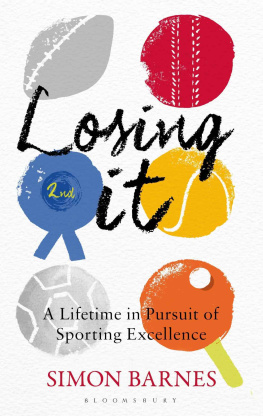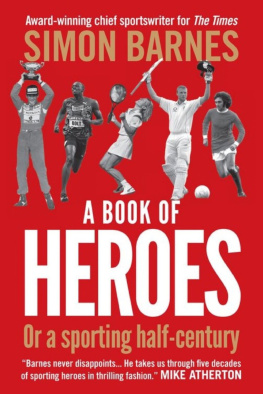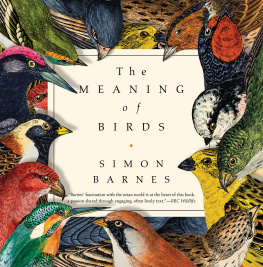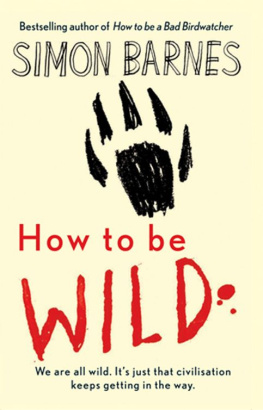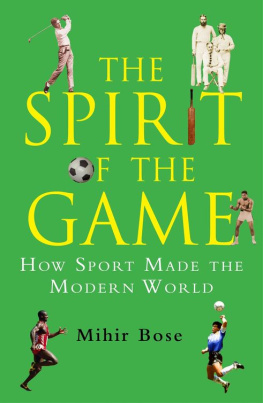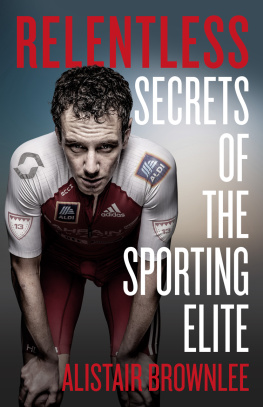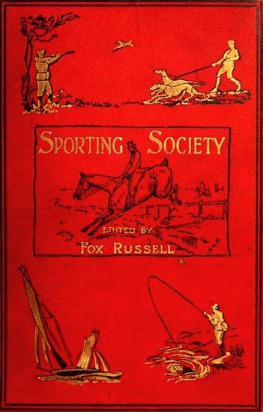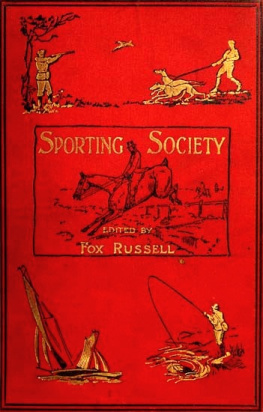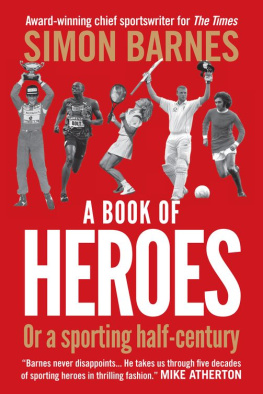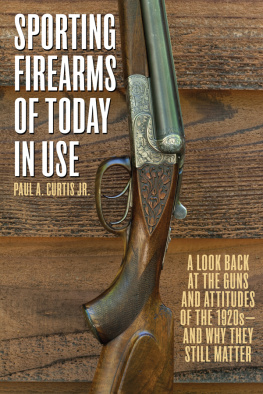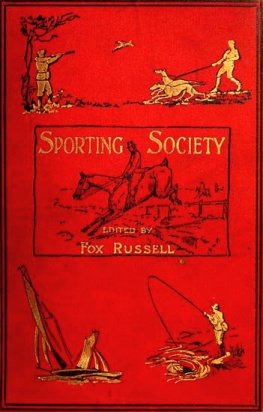Losing It
This is for all those I competed with, especially Roob and Salty. Its also for all those I competed against, especially the few that I (and we) managed to beat.

Contents
Most people go into sports journalism because they failed at sport. So its said, anyway. Not me. I went into sports journalism because I failed at writing. Ive written lots of books and covered lots of great sport for newspapers but that doesnt mean I havent failed. I have failed to be James Joyce, I have failed to be Basho, I have failed to be Marcel Proust, I have failed to be Gerard Manley Hopkins, I have failed to be Anthony Powell, I have failed to be Ian Fleming. But the fact that I have failed as a writer doesnt mean I havent failed at sport as well; its just that sport wasnt the failure that propelled me into sports writing. All the same, my experiences of actually doing sport and mostly not always failing at it have informed my writing and understanding about sport: how could they not? And about life, yes, that too.
I have practised the trade of sportswriter since 1976, with the odd interruption. I have covered Redhill FC, seven summer Olympic Games, 20-odd Wimbledons, Super Bowls, World Cups, World Series; Ive filled several passports with stamps and a lot of spiral-bound notebooks with frenzied italic scrawl, I was chief sportswriter at The Times for a dozen years. And everything I wrote about sport was informed, at some level, by the experience of doing it: by trying, by failing, by sometimes succeeding, by hoping too much and by caring too much. Experiences I have had on school playing fields, on village greens and at local shows are as vivid to me as my memories of Usain Bolt boogying to a world record in Beijing at the Olympic Games of 2008 or Australia reduced to two runs for three wickets in the first minutes of the Adelaide Test of 2010.
So lets start with a traumatic scene from childhood. After all, there are plenty of examples to imitate here. In A la recherche du temps perdu , its the moment when the narrators father abnegates. He gives up; the firm disciplinarian and hater of sentimentality offers the tearful Marcel his mother for the whole night I dont want anything, he explains unambiguously. And so the hell of being deprived of his mothers goodnight kiss is transformed into the highest heaven he is capable of imagining. In A Portrait of the Artist as a Young Man Stephen is unjustly beaten after his glasses were broken, so he dares to ask the rector, Father Conmee, to redress this terrible wrong. In the first volume of Anthony Powells A Dance to the Music of Time Widmerpool, in his running gear, makes his ominous appearance, materialising out of the mist in preparation for haunting the 12 volumes of the work. What can I do but offer you a scene of comparable depth and power? So here is the story of the day I realised I wasnt a cricketer.
I was, I think, nine at the time, so I really ought to have had a realistic notion of my sporting capabilities. I had played cricket forever: played with my father in the garden and on Streatham Common with John Murtagh and others. I knew that it was never me that hit the ball across Streatham Common South into The Rookery ornamental gardens. I see now that I should have realised that I was a trifle short on natural talent. For some reason I didnt think that would matter when it came to proper organised cricket with an umpire.
It was here that I betrayed the fact that, for me, sport was a province that lay within the kingdom of the imagination. Sport was about gorgeous myths peopled with heroes, an endless unwinding narrative of glorious deeds. I had no idea of practical purpose, attainable goals and making the best of whatever abilities you happen to have. More real to me was the notion of kicking the ball against the garage door. I have to hit the target in order to save the world and bang! Did you guess right? Yes, the world was saved and I was the hero once again. This, surely, was the heart and meaning of sport.
But cricket always mattered far more. I knew more about cricket than anyone else at Sunnyhill Junior School: naturally I should have been the star cricketer. When we went to Birmingham to stay with the grandparents, my grandfather and I would catch the bus to Edgbaston and watch cricket proper county cricket all day with immense concentration. I would watch Norman Horner and Billy Ibadulla open the batting for Warwickshire, Big Jim Stewart came in at first drop, and then, with joy not unmixed with trepidation, I would watch the great M. J. K. Smith walk out to the crease, sometimes to score many runs, sometimes, paining me deeply, to fail. I would watch the Test matches on television; my mother used to keep a scorecard in her borderline-legible Bironic loops, updated with the fall of each wicket. I would read the cricket reports in the newspaper in the certainty that doing so made me an insider. A true believer. Cricket was a special thing to me. No one else at Sunnyhill understood cricket as I did, they didnt know the stuff about cricket that I did and the great names I could recite held no meaning for them. I was cricket: no one else in the school could claim such a thing. It was obvious, then, that I would play cricket better than anyone else.
Mr Gray took the cricket. He was a fine teacher, who also did the school play and ran the chess club after school on Monday evenings. In our third year, instead of playing rounders with the girls in the playground with a big round bat and a soft ball, we boys went out to play cricket on the school field with a straight cricket bat and a ball that hurt. It was a coming of age. Though I should point out that I had never showed any great proficiency even at rounders. I was a bit of a duffer, truth to tell, undersized and without any conspicuous natural gift of coordination. I knew all that, but I was also deeply certain of something else. I believed I knew that soon all this underachievement would be forgotten as if it had never been. Rounders, after all, was only rounders, but this was cricket real, proper cricket with six-ball overs, a waving arm to indicate a four and a lifted index finger to signal the little death of dismissal. The wicket was matting, the stumps bail-less and driven into the ground as firmly as if they had been concreted. They were full-size: I can remember my astonishment at seeing these triple columns that reached almost to my armpits. The hard ball was nothing new to me. We wore pads to indicate the seriousness of the occasion: one pad for each batsman, worn on the leading leg, the one that takes most of the blows. When my turn came I strapped my pad on to my right leg with an air of calm certainty. Mr Gray had organised us into teams: Mrs Hollands class my lot against Mr Grays. 3H vs 3G. Bring it on.
So picture me striding out to bat, in my shorts, single pad aflap. It was when I took guard that I realised my pad was on the wrong leg: its the left leg that leads for a right-hander. But despite this dreadful solecism, I prepared to face the bowling.
What happened next perplexed me utterly. For nothing really happened.
The ball came and I was unable to do anything about it. I was frozen, not in terror, but in disbelief. The glorious transfiguration had failed to take place. I walked out as a weedy incompetent; I walked back unchanged. I could neither attack nor defend. I wasnt frightened of the ball or the bowler. I wasnt bowed down by responsibility or expectation. I just wasnt the person I thought I was. I just wasnt any good. I couldnt play. I really wasnt a cricketer after all.
I had thought it would just come to me. I thought that the moment I began to play proper grown-up cricket, my innate cover drive would at last leap free, unbound, in a glorious detonation of blessedness. I honestly thought that I would find myself playing a square cut, or rocking back to pull the ball to the boundary, leg-side, the mans side, as MJK called it. I thought that the act of playing proper cricket at last would see me emerging from a chrysalis: that I would spread my sporting wings and fly in brilliant colours across the grass of Sunnyhill playing fields. And I didnt.
Next page
